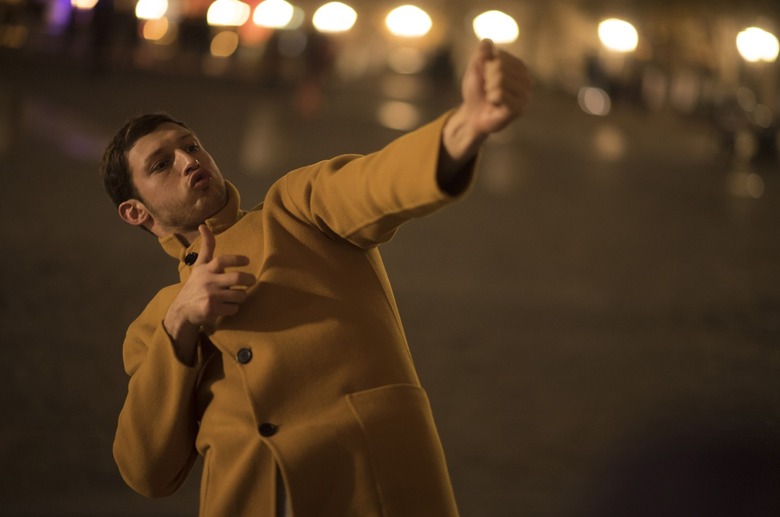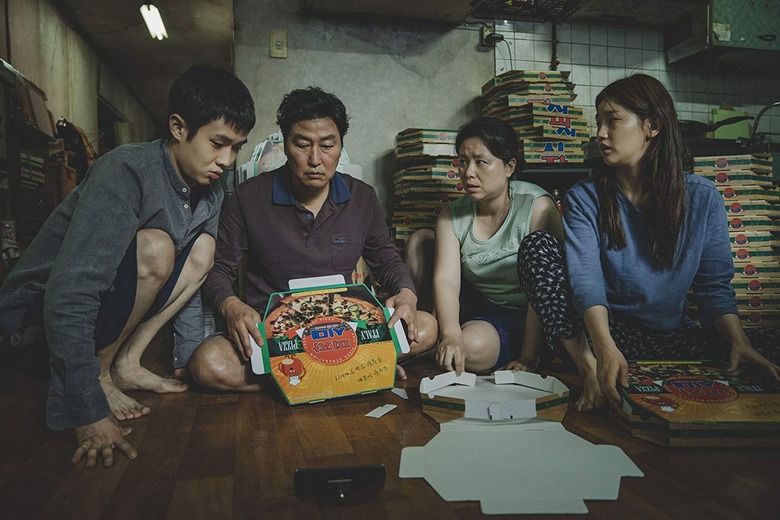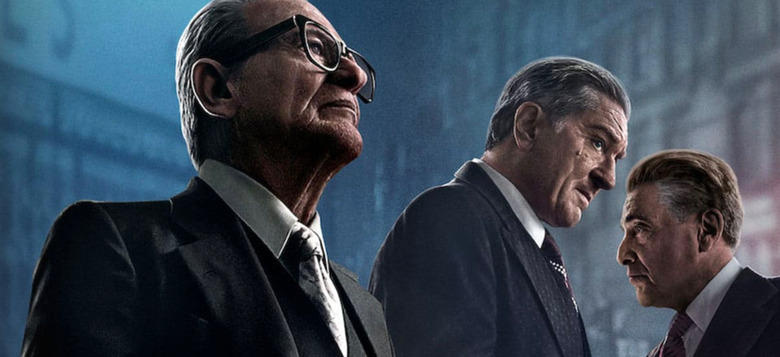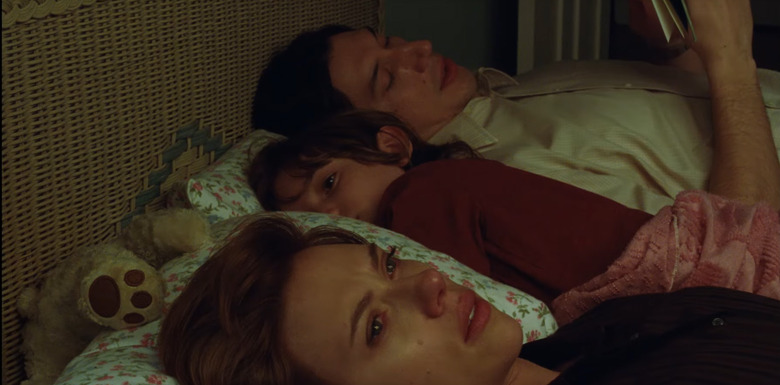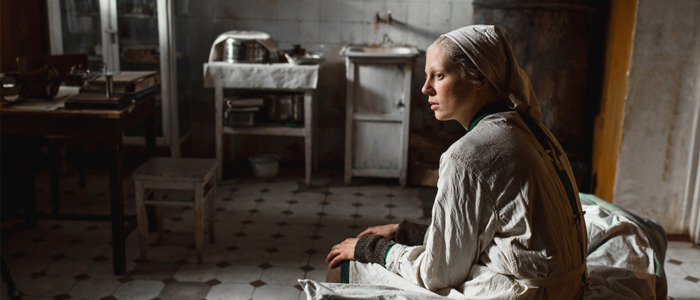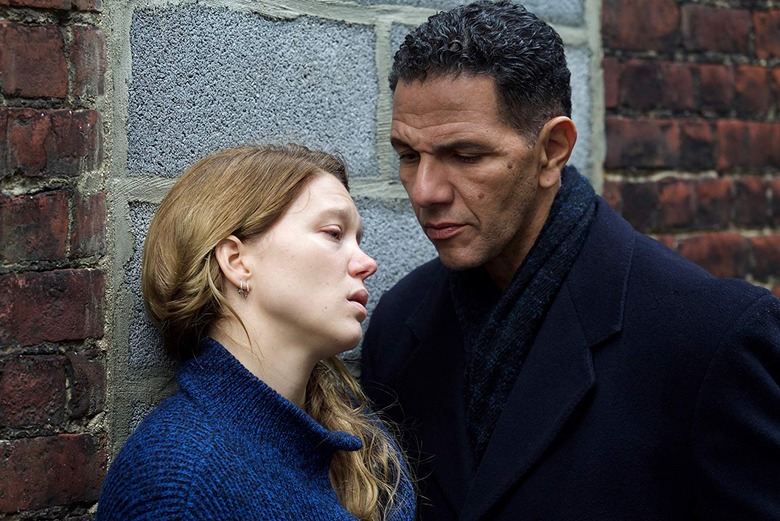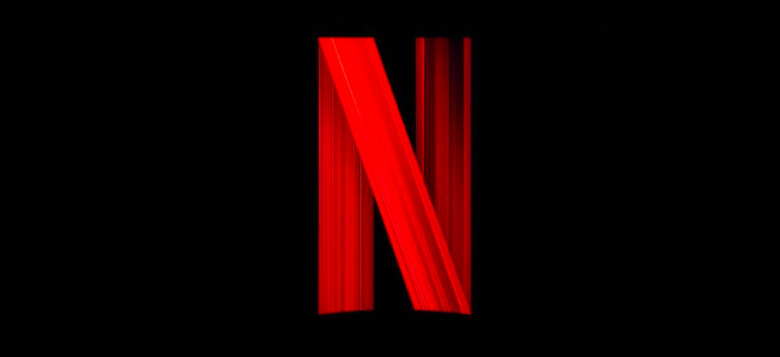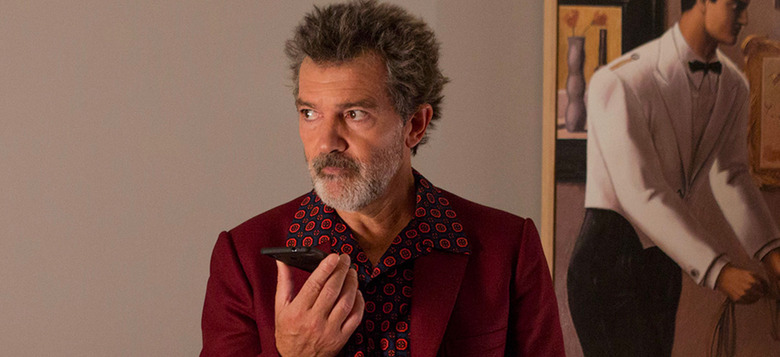10 Lessons From Watching The Entire 2019 New York Film Festival Main Slate
I've heard from many a festival-goer that it's possible to work through the entire New York Film Festival lineup – or at least its premier section, the Main Slate – given how the event spreads out manageably over the course of seventeen days all at Lincoln Center. But with schedule conflicts or lack of interest in certain titles, it's a feat seldom seen or accomplished. Or, maybe given how gluttonous I feel after having done this myself, people choose not to brag about it if they do manage to pull it off.
While battling fatigue as well as exhaustion, plus countless instances of doubting if this was something I actually wanted to do, I managed to see all 29 films programmed in this year's NYFF Main Slate. (If you're the ranking type, I did just that over on Letterboxd.) I learned plenty about myself and some masochistic moviegoing habits after subjecting myself to this marathon of viewing contemporary cinema, but that's a subject for another piece. It's impossible to watch this incredible selection of films from across the globe and not have some larger takeaways about trends, patterns and parallels. Here are ten lessons from surveying the Main Slate in its entirety.
1. Language Fails
Across a number of films at NYFF, characters must turn to non-traditional forms of communication when societal forces render them unable to use spoken or written language. I won't reveal the purpose of characters using Morse code in Parasite, as that does enter spoiler territory. Yet this binary method of communication, simple to transmit yet cumbersome to decode, proves an effective means for Bong Joon-ho to convey the status of those forgotten (or hidden) from the Korean upper class. Director Céline Sciamma, too, shows how the two female lovers in Portrait of a Lady on Fire must find ways to communicate their passion for each other in a society that does not allow them to express it openly.
But the most obvious example of this occurs in Corneliu Porumboiu's The Whistlers, in which a police officer learns a secret whistling language to evade surveillance as he tries to acquire a mobster's hidden bounty. Is all this inability to count on traditional forms of language a reflection of our post-truth moment? An indication that our current communication styles cannot adequately convey all the meaning we need? Is this reason to panic or hope? (More on this in an interview I recorded with Porumboiu at the festival, which will drop in February 2020...)
2. Ex-Pats, Immigrants, and Tourists Provide Fascinating Societal Portraits
There was no performance at NYFF quite like Tom Mercier (making his debut, no less) in Synonyms as former Israeli soldier Yoav, who has expatriated and is trying to deprogram himself in France. He quickly finds his adopted country has issues of its own, a revelation made possible due in large part to how detached from his own body Mercier feels. Synonyms feels almost like a movie where an alien drops in to visit France, akin to Under the Skin. It's riveting, and just one of many films in the Main Slate that used outsiders' perspective to give audiences a fascinating glimpse into a society's inner workings.
Or, in the case of Kiyoshi Kurosawa's To the Ends of the Earth, centering on a Japanese news anchor on assignment in far-off Uzbekistan, an outsider protagonist gets in touch with her inner self in strange surroundings. Elsewhere, Mati Diop's Atlantics and Bertrand Bonello's Zombi Child both conjure up the supernatural in order to highlight the persistent legacies of capitalist and colonialist exploitation, respectively. Kelly Reichardt's First Cow, meanwhile, frames much of its view of early America through the viewpoint of Chinese immigrant King Lu (Orion Lee) and thus exposes many early biases being built into the country's business framework.
3. Liberal Societies Are, Per Usual, Not Living Up to Their Values
Everywhere you looked at NYFF, there was a liberal democracy falling down on the job. Perhaps it was Belgium, where the Dardennes' Young Ahmed showed how extremist religion could still corrupt youth in a tolerant society. Or maybe it was Zombi Child, in which the legacy of French colonialism as practiced in Haiti comes home to roost – only to find many of the same attitudes still in place. In Brazilian film Bacurau, directors Kleber Mendonça Filho and Juliano Dornelles imagine a post-Bolsonaro country that might not be as far off as people think: attempting to quash the resistance of small-town rural dwellers by bringing in foreign mercenaries to literally wipe them off the map.
Two other films tweaked existing literary works to shine a light on their county's shortcomings. Pietro Marcello's adaptation of Martin Eden moves the action of Jack London's novel to Italy, where the titular character rails against established capitalistic corruption. And back in the United States, Edward Norton's Motherless Brooklyn also twists a novel's setting to find new life, but in time rather than place. In 1950s New York City, he finds an appropriate backdrop to show how democracies sell out to the highest bidder and hoodwink the public into cheering on their corruption.
4. The Working Class is Restless and Not Going to Take It Anymore
We've come a long way since "inequality" was a flashy buzz word used by President Obama in 2013 when he called it the defining challenge of our time. It's now a part of the everyday discussion of economics, and much of the Main Slate reflected the anger this awareness of inequality has sparked. Bacurau, Parasite, and Atlantics each crystallized the frustration felt by a class of people who has been overlooked, ignored, and exploited. In all three films, the tension spills over into startling (and sometimes cathartic) violence, suggesting business as usual will no longer cut it. If nothing else, it's instructive to observe how conflicts that appeared to be merely simmering a few years ago have now reached a full boil.
5. Genre Gets a Warm Embrace
While NYFF did relegate the Golden Lion-winning Joker to a "special screening," plenty of other films with heavy genre elements received the warm embrace of a Main Slate spot. It's tough to call any of the films pure "genre films" because each filmmaker took some kind of unique angle on established conventions. Be it Martin Scorsese injecting somber, reflective mortality into the gangster film with The Irishman or Filho/Dornelles supercharging the Western in Bacurau by contemporizing the invasion of a small town by outsiders, directors consciously toyed with existing filmic iconography in riveting fashion. Other great examples in the Main Slate included Corneliu Porumboiu's droll take on the spy thriller with The Whistlers and Edward Norton's politically urgent noir update in Motherless Brooklyn. Elsewhere, Mati Diop deploys ghosts in Atlantics and Bertrand Bonello raises zombies in Zombi Child.
I'm not exactly holding my breath for NYFF to start programming midnight-style pulpy genre films. However, this year's Main Slate crop proves they might not have to do that in order to pack a similar sensation into their lineup. Global filmmakers are grappling with the legacy of the many images and storylines that precede their work, which represents cause for excitement and intrigue.
6. Not Many Hollywood Endings
Look, there's no artful way to talk about this without being a jerk and going into spoiler territory. So let me just say, without naming too many specific movies, that if you're looking for a film that will make you feel bright and happy about people or the state the world...you'd be advised to look elsewhere beyond the 2019 NYFF Main Slate. Weirdly, one of the most hopeful movies I saw was Noah Baumbach's Marriage Story, which charts the decline of a marriage through a bitter divorce. Even films that ended on a slightly positive note had to acknowledge the bittersweet nature of their conclusions.
More often than not, characters in these films chose to turn their back on society rather than find a way to integrate into it. They opted for fatalism and nihilism. They embraced their own meaninglessness, fallibility, and demise. If you're scouting for a sign of the times in the lineup amidst this deluge of contemporary storytelling, look no further.
7. Women Captivate Both in Front of and Behind the Camera
Female representation has proved a growing concern for festivals, and the Main Slate did a decent job programming them in 2019. Six out of the 29 selections (21%) were by female directors, and I would argue four were true standouts – Atlantics, Varda by Agnès, First Cow, and Portrait of a Lady on Fire. It's clear these were not programmed to meet a quota; they earned their spots.
But the Main Slate's spotlight on women did not end behind the camera. Some of the most captivating films delved deeply into the struggles faced by female protagonists, be they psychological, systemic, or institutional. Noah Baumbach's Marriage Story, Koji Fukada's A Girl Missing, and Justine Triet's Sibyl burrowed into the headspace of their leading ladies. Meanwhile, Kantemir Balagov's Beanpole and Bertrand Bonello's Zombi Child foreground the conflicts of the many women in their narratives within a broader cultural landscape that is often unsure of what to make of female contributions to society. (Heck, even among the Main Slate selections I was colder on, I at least found the female protagonists of Saturday Fiction and Vitalina Varela far more captivating to watch than males in films of similar qualities.)
8. Older Filmmakers Fall While Younger Filmmakers Are Ascendant
Not unlike Cannes, the New York Film Festival tends to lean on a reliable stable of directors and program virtually anything they make. The core of this impulse – following a director as they develop in their career and allowing audiences to chart the progress – is admirable, but it also tends to create an old boys club that keeps out new voices. I know it's not a zero-sum game, but it was frustrating to see middling efforts from Olivier Assayas (Wasp Network), Arnaud Desplechin (Oh Mercy!), and the Dardennes Brothers (Young Ahmed) get rewarded with Main Slate slots at the expense of so many young filmmakers who could have really used the boost. The ones the festival did take a chance on, such as Kantemir Balagov (Beanpole), Mati Diop (Atlantics), and Koji Fukada (A Girl Missing) delivered some of the most thrilling films in the lineup.
This isn't a suggestion that the NYFF team should put a quota on older directors, in part because there were plenty of reflective, moving works from filmmakers in their late careers: Martin Scorsese (The Irishman), Pedro Almodóvar (Pain & Glory), and the late Agnès Varda (Varda by Agnès). But if the programmers want to push cinema forward rather than just spin their wheels, they might consider taking a few more bets on some up-and-comers. (If they need suggestions, and they don't, might I point them in the direction of the countless subversive female directors who caught my attention at TIFF?)
9. Netflix Isn’t Going Away
In his introduction to the premiere of Marriage Story, Noah Baumbach gave the customary thanks to his distributor, Netflix. But he then continued to say that it's the best place to make movies today. It sounded sincere, which ought to be enough to set off some alarm bells given Baumbach's traditionally sardonic demeanor. Given that two of the film's three gala slots were Netflix premieres, it's hard not to see the writing on the wall. As long as the streaming giant has deep pockets, they'll likely be the premier destination for directors seeking creative freedom and limited interference. (What distributor other than Netflix would be totally chill with Martin Scorsese turning in a 209-minute film?) And, somewhat depressingly, places like NYFF may represent one of only a few venues where audiences can see those films projected.
10. Movies Are So, So Good
How can you watch 29 films curated from across the globe and not have this as the main takeaway? For all the (justified) handwringing over the future of the industry, there's something so pure to stepping inside a festival environment where film is once again king of culture. The majority of the films in NYFF's Main Slate earned the prime conversational position they gained through their selection. Even the ones that didn't work for me were at least interesting, provocative misfires. Don't let anyone tell you great movies aren't out there anymore – they're here at the New York Film Festival in spades. It's just now incumbent on those of us who attended to get the people we know outside of the festival bubble to go see them, too.


